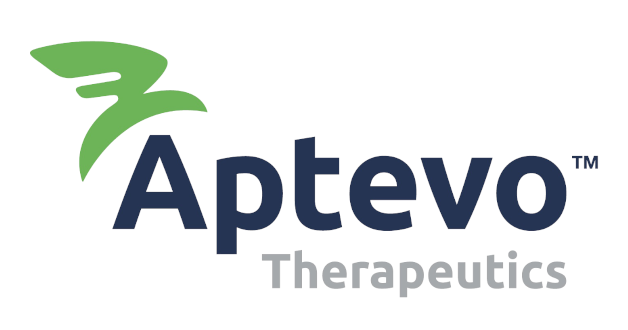- Initial interim data show favorable drug exposure and confirm ALG.APV-527 biological activity
- Early promising signs of clinical activity in heavily pretreated patients
- Dose-escalation trial data on track for readout H2 2024
Lund, Sweden, and Seattle, Washington, March 07, 2024 – Alligator Bioscience AB (“Alligator”) (Nasdaq Stockholm: ATORX) and Aptevo Therapeutics (“Aptevo”) (Nasdaq: APVO) today announced positive interim data from the dose escalation phase of their Phase 1 trial evaluating ALG.APV-527 for the treatment of solid tumors likely to express the tumor antigen 5T4.
The multi-center, dose escalation trial is now more than 50% enrolled, and preliminary results include:
- Treatment was overall well-tolerated, and a maximum tolerated dose has not yet been determined, dose-escalation in higher-dose cohorts is ongoing
- ALG.APV-527 could be measured in all patients with plasma concentration of ALG.APV-527 consistent with the administered dose
- Biomarker analyses indicate the expression of the targets (4-1BB and 5T4) in tumor biopsies and confirm biological activity of ALG.APV-527
Of particular interest, signs of clinical activity were observed for both enrolled patients with heavily pre-treated breast cancer. These patients demonstrated measurable level of drug in circulation (pharmacokinetics) and reproducible elevation of serum pharmacodynamic markers with dosing, suggesting the drug is biologically active. One patient remained on study for seven months and a second remains on study beyond nine months. Both patients achieved best overall response of stable disease.
“I am pleased to share that we are now dosing cohort four, heading into higher dose ranges where we believe there is potential for increased signs of clinical activity based on preclinical models. We have treated patients with multiple tumor types including breast, pancreatic, non-small cell lung cancer and colorectal cancer. It is our belief that continued analysis of this cross section of tumor types will offer important insights about ALG.APV-527 that can be used to increase our success in later stage development,” said Dirk Huebner, MD, Chief Medical Officer at Aptevo. “Additionally, as the trial has progressed, we have seen growing enthusiasm among our clinical sites, evidenced by a long and growing waiting list of patients who would like to participate in the study. We look forward to announcing additional data later in the year.”
“We’re thrilled to share positive interim Phase 1 data from our trial with ALG.APV-527, a testament to our dedicated collaboration with Aptevo. The presence of both targets in tumor biopsies is a particularly encouraging finding, which underlines the potential of our novel bispecific antibody to treat multiple indications,” said Sumeet Ambarkhane, MD, CMO at Alligator Bioscience. “We very much look forward to continuing this journey together, to make a meaningful impact in the fight against cancer.”
About the Trial
The ALG.APV-527 Phase 1 trial is a multi-center, multi-cohort, open-label trial that will include six cohorts (dose levels) in a 3+3 design*. The trial will be conducted at up to 10 sites in the U.S. among adult patients with multiple solid tumor types/histologies likely to express the 5T4 antigen. ALG.APV-527 will be given intravenously once every two weeks. The trial will assess the safety and tolerability, pharmacokinetics, pharmacodynamics and preliminary anti-tumor activity of ALG.APV-527.
*The 3+3 design proceeds in cohorts of three patients treated at increasing dose levels. Dose escalation stops when at least two out of three or six patients experience dose limiting toxicities (DLTs) at that dose level.
About ALG.APV-527
ALG.APV-527 is a bispecific conditional 4-1BB agonist, only active upon simultaneous binding to 4-1BB and 5T4. This has the potential to be clinically important because 4-1BB can stimulate the immune cells (antitumor-specific T cells and NK cells) involved in tumor control, making 4-1BB a particularly compelling target for cancer immunotherapy. 5T4 is an oncofetal tumor associated antigen overexpressed on numerous solid tumors including non-small-cell lung carcinoma (NSCLC), breast, head and neck, cervical, renal, gastric, and colorectal cancer.
Preclinical studies, highlighting the differentiated design of the molecule that minimizes systemic immune activation, allowing for highly efficacious tumor-specific responses as demonstrated by potent activity in preclinical models, were recently published in the peer-reviewed publication, Molecular Cancer Therapeutics, a journal of the American Association for Cancer Research (AACR).
